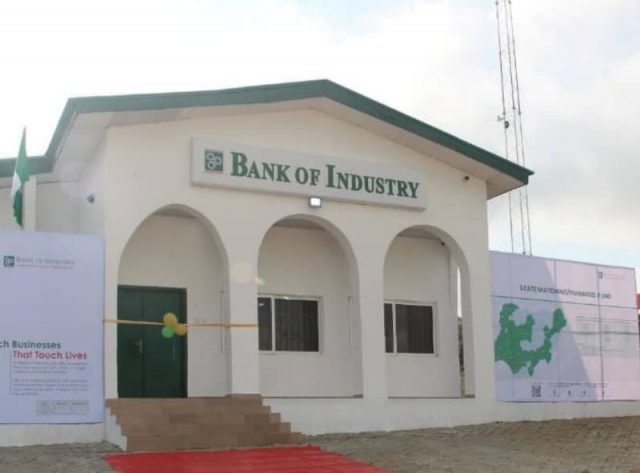…Fitch has affirmed Nigeria-based BOI’s Long-Term Issuer Default Rating (IDR) at ‘B’ with a Stable Outlook.
MON 07 FEB, 2022-theGBJournal- Fitch Ratings has assigned Bank of Industry Limited’s (BOI) senior note participation notes an expected long-term rating of ‘B (EXP)’ with a Recovery Rating of ‘RR4’. The notes will be issued by BOI Finance B.V. (BOI Finance), a Netherlands-based special purpose vehicle established solely to provide funding for BOI.
‘’The notes’ expected rating is in line with BOI’s and Nigeria’s Long-Term IDRs of ‘B’ due to the transaction’s features,’’ Fitch said.
The global rating agency said the assignment of a final rating is contingent on a review of the final terms and conditions conforming to information already received by Fitch.
Fitch withdrew BOI’s Support Rating of ‘4’ and Support Rating Floor of ‘B’ ‘’as they are no longer relevant to the agency’s coverage following the publication of its updated Bank Rating Criteria on 12 November 2021,’’ and in line with the updated criteria, Fitch assigned BOI a Government Support Rating (GSR) of ‘b’.
Under the transaction’s structure of the SENIOR DEBT, BOI Finance will use the proceeds of the notes to purchase a senior note issued by BOI. BOI’s financial obligations under the senior note will be irrevocably and unconditionally guaranteed by the Federal Government of Nigeria (FGN).
Fitch explains: ‘’ The FGN guarantee does not apply to the notes issued to investors by BOI Finance but to BOI’s obligations to BOI Finance under the senior note. However, given the guarantee and structural features of the transaction, in Fitch’s view if BOI fails to meet its obligations under the senior note, the FGN’s guarantee would serve to ensure the full repayment of principal and interest on the notes issued by BOI Finance. Any further series could be rated differently, in the absence of a similar guarantee.’’
BOI’s Long-Term IDR is equalised with Nigeria’s sovereign rating (B/Stable). This reflects our view that the Nigerian authorities have a high propensity to support BOI, if required, given BOI’s 99.9% state ownership, long-lasting policy role and strategic importance to the country’s economic development, and the entirety of its wholesale funding being either provided or guaranteed by the Nigerian state. However, Fitch views the ability of the authorities to support BOI as limited, as indicated by the level of Nigeria’s sovereign rating. The Stable Outlook on BOI’s Long-Term IDR mirrors that on the sovereign.
BOI is Nigeria’s primary development bank, and its important role would be difficult to transfer to another state-owned institution, in our view. The bank supports government policies, including financing the country’s emerging industrial sector.
BOI has diversified its funding since the onset of the pandemic. In March and December 2020, the bank secured two large syndicated loan facilities of EUR1 billion and USD1 billion, respectively, from syndicates of commercial banks and multilateral development banks, which are fully guaranteed by the Central Bank of Nigeria (CBN). The proceeds of the borrowings are swapped with the CBN, boosting its foreign-exchange reserves and providing BOI with Nigerian naira to support its developmental activities. Channelling substantial funding to borrowers and priority sectors will take time. At end-1H21, 48% of BOI’s total assets were kept in liquid government bonds and cash, compared with 20% at end-2019.
BOI maintains solid capitalisation and leverage metrics (end-1H21: equity-to-asset ratio of 19.4%), which is prudent for the bank’s exposure to the volatile operating environment. Profitability is not a key objective. However, BOI continues to generate reasonable returns on equity (1H21: 18% annualised) driven by healthy net interest margins and moderate loan impairment charges so far.
Twitter-@theGBJournal|Facebook-The Government and Business Journal|email: govandbusinessj@gmail.com|










